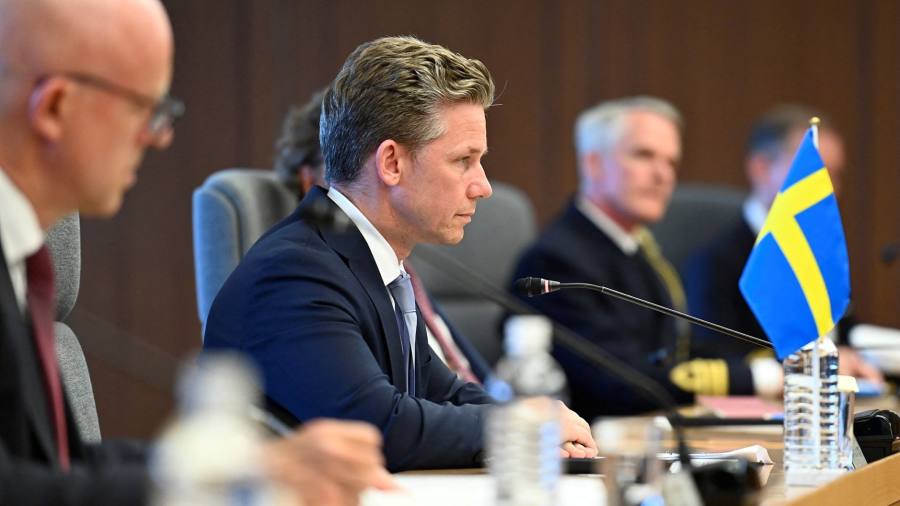Receive free Sweden updates
We’ll send you a myFT Daily Digest email rounding up the latest Sweden news every morning.
Sweden will increase its defence spending next year by more than a quarter to meet Nato’s target of 2 per cent of gross domestic product even as the Scandinavian country struggles to overcome Turkish opposition to it joining the western military alliance.
Pål Jonson, Sweden’s defence minister, said on Monday that defence spending would increase by almost 30 per cent to SKr119bn ($11bn) next year in response to Russia’s full-scale invasion of Ukraine.
“Sweden finds itself in the most serious security situation since the end of the second world war, which requires Sweden to have a defence that is ready to protect Swedish territory,” said the agreement between the centre-right government and the nationalist Sweden Democrats.
Sweden has promised Ukraine military support amounting to SKr19bn in total, and said other big investments for next year included new artillery systems, transport planes as well as continued purchases of fighter jets and submarines.
Sweden and neighbouring Finland responded to Russia’s invasion by seeking to join Nato and its promise of collective defence. While Finland became Nato’s 31st member in April, Sweden’s membership application has been held up by Turkey.
Turkish president Recep Tayyip Erdoğan promised in July that his country’s parliament would examine it in the autumn and that he would “work closely with the assembly to ensure ratification”.
But Erdoğan has sharply criticised a series of Koran burnings in Sweden and Denmark — including in front of the Turkish embassies — and has hinted at further delays in the ratification, which has been pending for more than a year.
Turkey’s president lashed out at his US counterpart Joe Biden at the weekend at the G20 meeting in India. He said that Biden’s attempts to link a sale of F-16 fighter jets to Turkey with Ankara’s ratification of Sweden’s Nato bid “seriously upsets us”.
Sweden’s centre-right government has sought to mollify Turkey by passing a new anti-terror law and looking at ways to limit the Koran burnings.
Sweden took advantage of the “peace dividend” following the end of the cold war to cut its defence spending while Finland, which neighbours Russia, did not. Sweden has doubled its defence budget since 2020 under both left- and right-wing governments, which originally included reaching 1.5 per cent of GDP by 2025 and 2 per cent by 2030.
The new coalition in Stockholm has sped up those plans significantly as well as strengthened bilateral ties to Finland and the US alongside its focus on the Nato bid following Russia’s aggression.
Jonson said that the increased spending was due to Sweden’s pending Nato membership and the changes that would require; boosting its own total defence capabilities; and increased military support to Ukraine.
“We are facing historic tasks in defence policy. We will intensify the work on the biggest build-up of total defence since the 1950s,” he added.
Read the full article here




